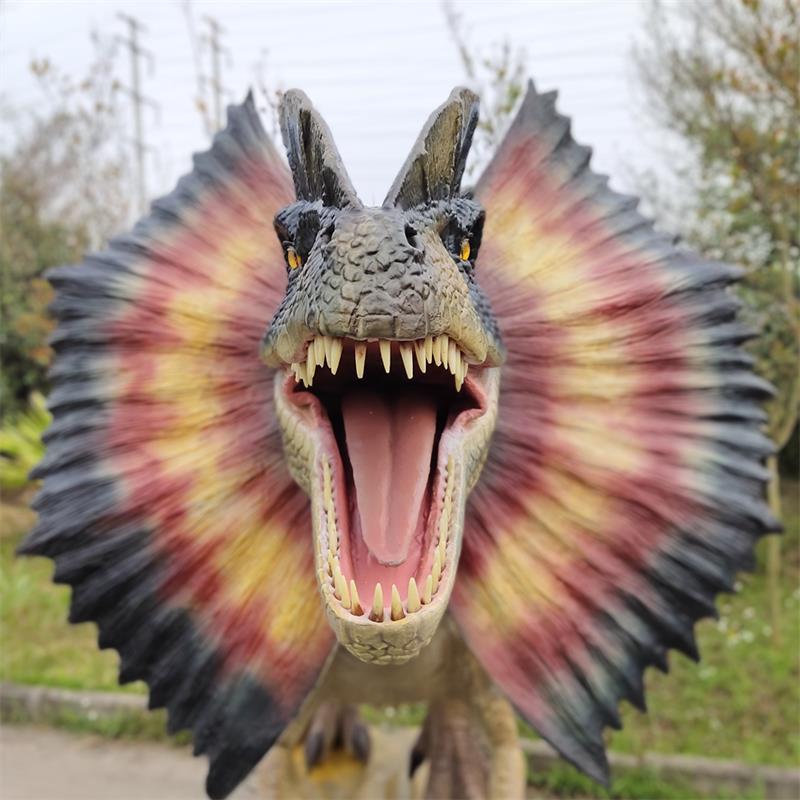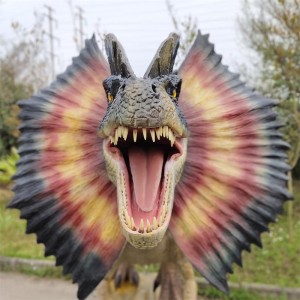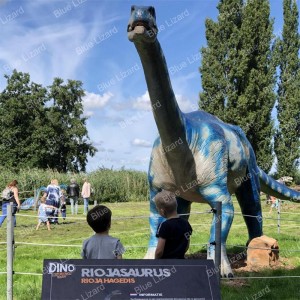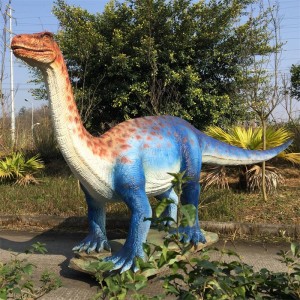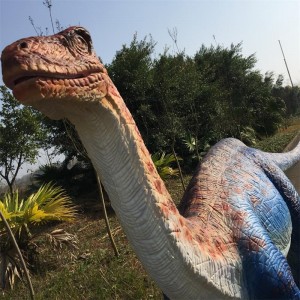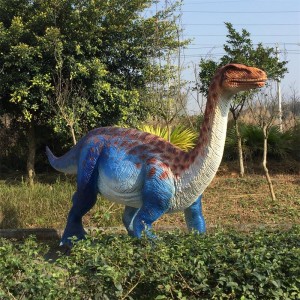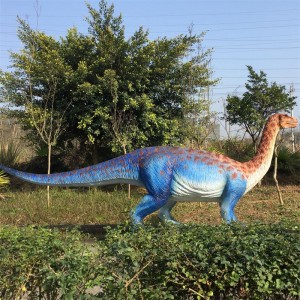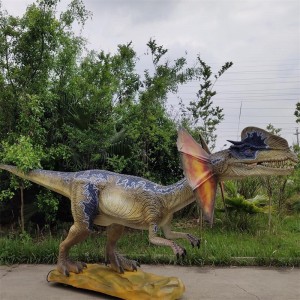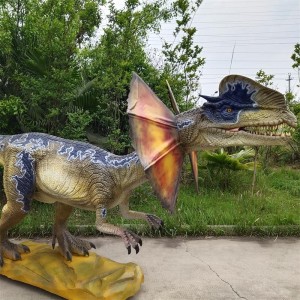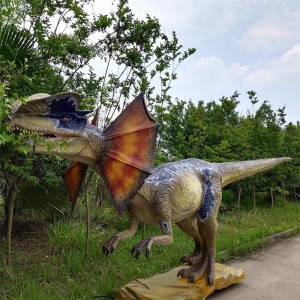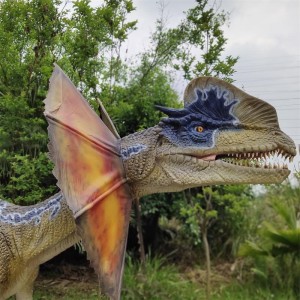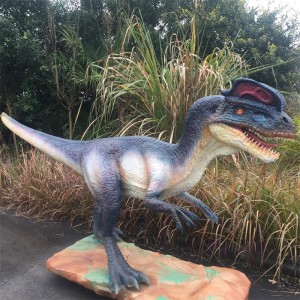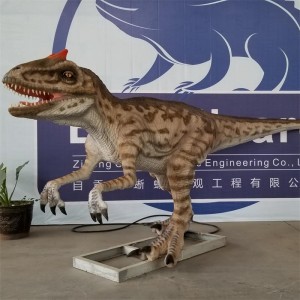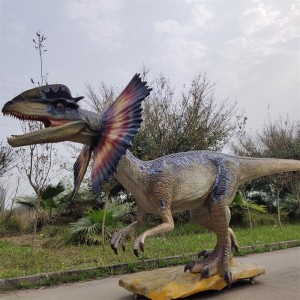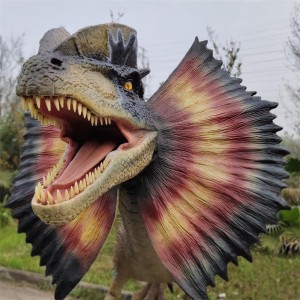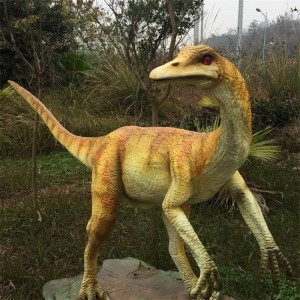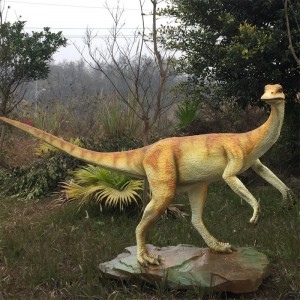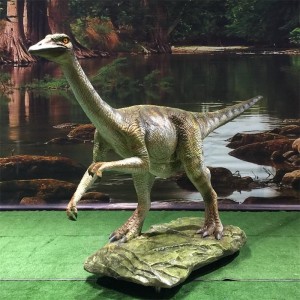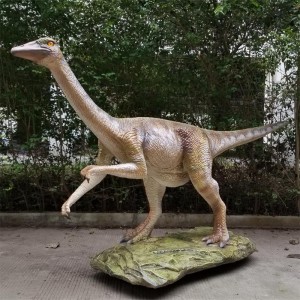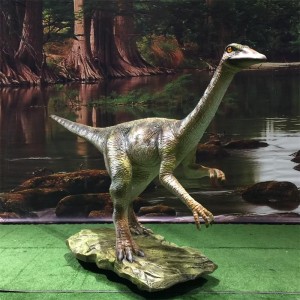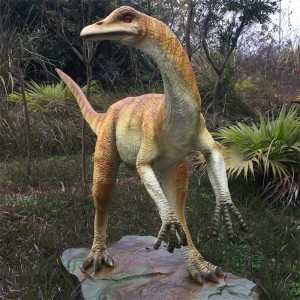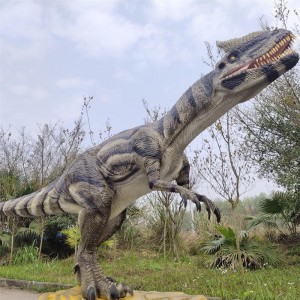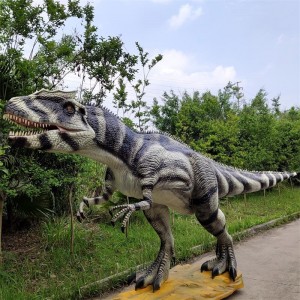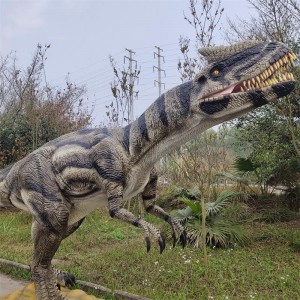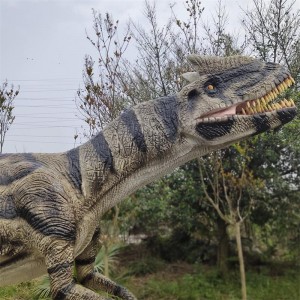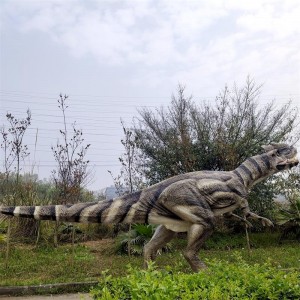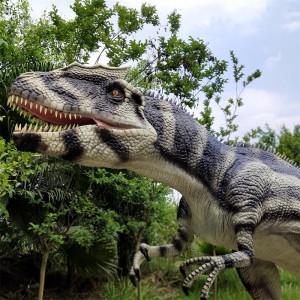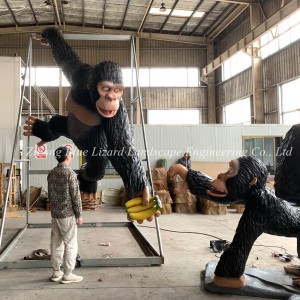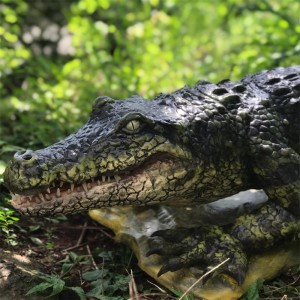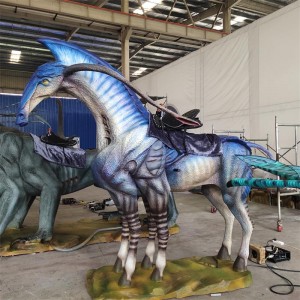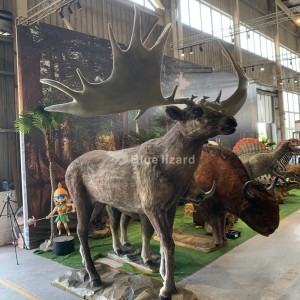Theme Park Animatronic Dinosaur Museum Exhibit models
PRODUCT DESCRIPTION
Sound: Dinosaur roaring and breathing sounds.
Movements: 1. Mouth open and close synchronize with sound. 2. Eyes blinking. 3. Neck moves up and down. 4. Head moves left to right. 5. Forelimbs move. 6. Belly breathing. 7. Tail sway. 8. Front body up and down. 9. Smoke spray. 10. Wings flap.(Decide which movements to use according to the size of the product.)
Control Mode: Infrared Sensor, Remote control, Token coin operated, Customized etc.
Certificate: CE, SGS
Usage: Attraction and promotion. (amusement park, theme park, museum, playground, city plaza, shopping mall and other indoor/outdoor venues.)
Power: 110/220V, AC, 200-2000W.
Plug: Euro plug, British Standard/SAA/C-UL. (depends on standard of your country).
WORKFLOWS

1. Control box: Independently developed fourth-generation control box.
2. Mechanical Frame: Stainless steel and brushless motors have been used to make dinosaurs for many years. Each dinosaur's mechanical frame will be continuously and operationally tested for a minimum of 24 hours before the modelling process begins.
3. Modelling: High density foam ensures the model looks and feels of the highest quality.
4. Carving: Professional carving masters have more than 10 years of experience. They create the perfect dinosaur body proportions absolutely based on dinosaur skeletons and scientific data. Show your visitors what the Triassic, Jurassic and Cretaceous periods really looked like!
5. Painting: Painting master can paint dinosaurs according to customer's requirement. Please provide any design
6. Final Testing: Each dinosaur will also be continuous operated testing one day before shipping.
7. Packing : Bubble bags protect dinosaurs from damaging. PP film fix the bubble bags. Each dinosaur will be packed carefully and focus on protecting eyes and mouth.
8. Shipping: Chongqing, Shenzhen, Shanghai, Qingdao, Guangzhou,etc. We accept land, air, sea transport and international multimodal transport.
9. On-site Installation: We will send engineers to customer's place to install dinosaurs.
